Filter by
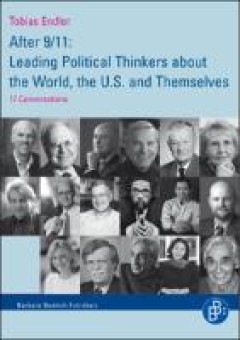
After 9/11 : leading political thinkers about the world, the U.S. and themsel…
After 9/11 presents 17 interviews with America´s leading political thinkers. Renowned experts such as Zbigniew Brzezinski, Francis Fukuyama, and Noam Chomsky discuss the nation’s foreign policy in the post-9/11 world. Yet, they also comment on their own role in US society – and the mounting challenges they face today. The conversations illustrate the hopes and expectations, the anger and f…
- Edition
- Edition 11
- ISBN/ISSN
- 9783866496859
- Collation
- 219 p.
- Series Title
- -
- Call Number
- 327.73 END a
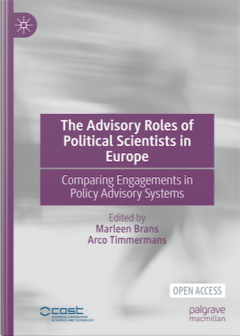
The advisory roles of political scientists in Europe : comparing engagements …
This open access book centres on the advisory roles of political scientists in Europe. Based on a cross-national survey, the book offers a comparative analysis of the viewpoints and activities of university-based political scientists on external engagement. Political scientists in Europe appear more extrovert as academics than sometimes thought. In their professional functioning they engage in …
- Edition
- 9
- ISBN/ISSN
- 9783030860059
- Collation
- xxx; 421p;
- Series Title
- -
- Call Number
- 320.6094 ADV M
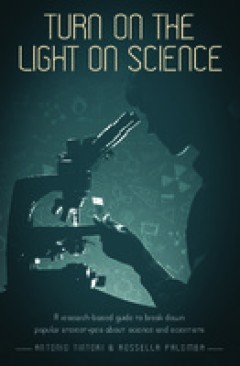
Turn on the light on science : a research-based guide to break down popular s…
"Scientists deserve public recognition. The ways that they are depicted, however, are severely limited in physical and personal traits, helping to establish and enhance stereotypes under the general title of ‘scientist’. These stereotypes range from the arrogant researcher who wants to rule the world, to the lab coat wearing ‘nerdy’ genius, but all generally fall to an extreme view of a…
- Edition
- -
- ISBN/ISSN
- 9781911529057
- Collation
- xvi, 103p.
- Series Title
- -
- Call Number
- 509 TUR t
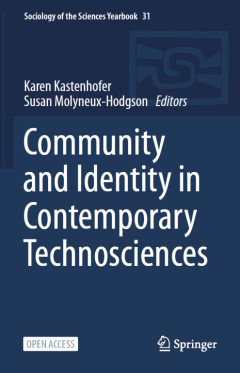
Community and identity in contemporary technosciences
This open access edited book provides new thinking on scientific identity formation. It thoroughly interrogates the concepts of community and identity, including both historical and contemporaneous analyses of several scientific fields. Chapters examine whether, and how, today’s scientific identities and communities are subject to fundamental changes, reacting to tangible shifts in research f…
- Edition
- -
- ISBN/ISSN
- 9783030617288
- Collation
- xii, 315p. : ill.
- Series Title
- -
- Call Number
- 305.96 COM c
Continuing professional development - preparing for new roles in libraries : …
Librarians and information workers the world over are faced with the constant challenge of remaining abreast of developments in their field. Rapid changes in technology and workplace roles threaten to make their skills obsolete unless they undertake constant professional development. This international collection presents a comprehensive overview of current continuing professional development t…
- Edition
- -
- ISBN/ISSN
- 9783598440168
- Collation
- 307 p.
- Series Title
- IFLA Publications, 116
- Call Number
- 020.7155 CON c
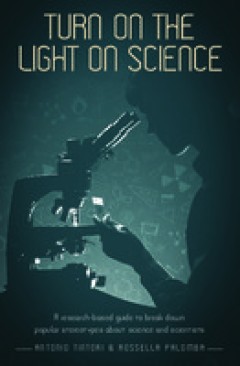
Turn on the light on science: a research-based guide to break down popular st…
"Scientists deserve public recognition. The ways that they are depicted, however, are severely limited in physical and personal traits, helping to establish and enhance stereotypes under the general title of ‘scientist’. These stereotypes range from the arrogant researcher who wants to rule the world, to the lab coat wearing ‘nerdy’ genius, but all generally fall to an extreme view of a…
- Edition
- -
- ISBN/ISSN
- 9781911529057
- Collation
- xvi, 104p.: ill.
- Series Title
- -
- Call Number
- 530.092 TIN t
 Computer Science, Information & General Works
Computer Science, Information & General Works  Philosophy & Psychology
Philosophy & Psychology  Religion
Religion  Social Sciences
Social Sciences  Language
Language  Pure Science
Pure Science  Applied Sciences
Applied Sciences  Art & Recreation
Art & Recreation  Literature
Literature  History & Geography
History & Geography